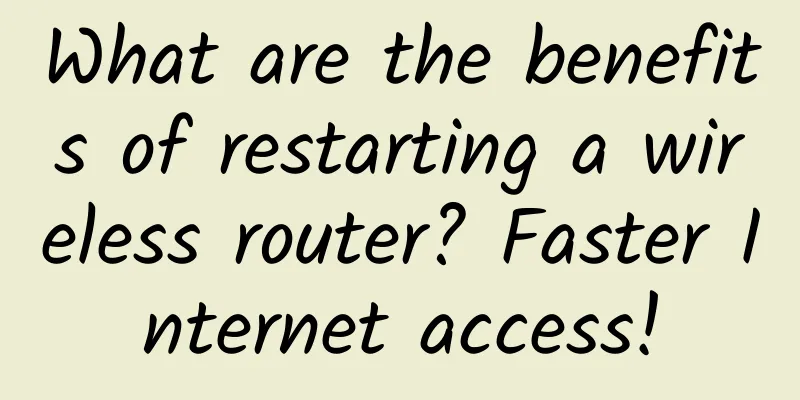Why is your internet speed still so slow after using CDN? Here are 4 reasons!

|
CDN, or Content Delivery Network, is designed to speed up web page loading times, but have you ever found that despite using a CDN, your website is still slow? There are many other factors that can slow down your website or web application. If you are evaluating or using a CDN, consider the following four areas, which are the top four factors that influence why your CDN is not effective: Insufficient hardware resources A CDN will offload traffic from your web server, but even with less web traffic, your server hardware may still not be able to keep up. If you’re still seeing spikes in CPU and RAM usage, it may be time to add or upgrade your hardware resources. Software bugs or misconfigurations can also cause CPU spikes and memory leaks. Make sure you have the latest OS and software patches on your servers, and check that all server configurations are correct.
Network Issues While a CDN should provide a more reliable and efficient network, network problems with your server's ISP can cause bandwidth bottlenecks. Even if you have a CDN, if you encounter situations such as unexpected cuts in undersea communications cables, natural disasters, thieves who steal fiber optic cables, DDoS attacks, ISP routing problems, and hardware outages, it can also cause latency issues.
Third-party objects Nowadays, due to time-saving or cost-saving reasons, websites are increasingly occupied by third-party hosted objects, such as third-party javascript, analytical tools, and multimedia, and sites are becoming more and more bloated. CDN is designed to accelerate or cache content from the server, and will not cache objects hosted on third-party servers. If a CDN will reduce the delivery of 4 objects from your site, but third-party objects account for 40% of total page load time, you might only see a 1.5x improvement, not a 4x improvement. The higher the percentage of total page load time that third-party objects account for, the less improvement the CDN will see. Improper cache settings The more objects you cache from your site, the more benefit you get from a CDN, so don't underestimate the power of caching. However, there are some objects that should not be cached, such as HTML files and scripts that need to be updated frequently. You can set a shorter cache-control time for objects that need to be updated frequently, but having a short cache-control time for static objects that do not change often will not optimize your CDN utilization. If your website has low traffic, you may need a longer cache-control time. If the cache-control time limit of an object has expired, the next request will have to go back to the server instead of the CDN's edge.
In summary, a CDN can overcome most of the issues that cause a website or web application to run slowly, but please also consider the above four potential reasons why your website may not be running at its full potential, so that you can more accurately determine the cause of slow network speed. |
<<: Talk about 5G in plain language: ten knowledge points to ensure you understand
>>: 5G+IoT, why will it usher in a completely different era of “operator of everything”?
Recommend
DigitalVirt: 95 yuan/year-1GB/10GB NVMe/1TB@200Mbps/Hong Kong International Line
DigitalVirt recently offered a 50% discount coupo...
Don’t listen to the merchants’ lies: WiFi signals can’t actually penetrate walls
With the continuous iteration of WiFi technology,...
Is it impossible for non-middlemen to hijack TCP?
TCP initial sequence number Hi, my name is Robert...
Cloud + AI, Huawei Enterprise Communications Makes Connections Ubiquitous
[Original article from 51CTO.com] Traditional ent...
After 4 years, 5G has blossomed
In June 2019, my country officially issued 5G com...
4G is still growing, but 5G is a bit awkward. Has the promised 5G phone replacement trend come to an end?
Last week, the Ministry of Industry and Informati...
5G+4K: This is how you can spend Valentine's Day this year
A sudden epidemic has plunged the whole country i...
Will 5G be the connectivity miracle for the Internet of Things?
Thanks to 5G, high-speed internet will soon be av...
A brief discussion on SD-WAN troubleshooting
What do you do when your SD-WAN has a problem or ...
As 5G technology matures, can it help accelerate the implementation of blockchain?
2019 has become the hot spot for the development ...
ZJI launches Hong Kong Huawei Cloud CN2 server: 450 yuan/month E5-2630L, 16G memory, 480G SSD, 5M CN2 line
ZJI has launched a new machine again, this time i...
WeChat Android version 7.0.21 beta version update: audio and video editing component breakpoint resume, optimized performance
According to netizens’ reports on November 18, We...
V5.NET Hong Kong physical server 40% off, 390 yuan/month-E5-2630L/16GB/480G SSD/10Mbps/2IP
V5 Server (V5.NET) has announced a long-term 40% ...
Xiao Yaqing from the Ministry of Industry and Information Technology: 6G is currently in the exploratory stage
In November 2019, my country established the Nati...
The United States announced the development of a quantum internet, claiming it can never be hijacked
[[334868]] Image: Chicago Mayor Lori Lightfoot an...









